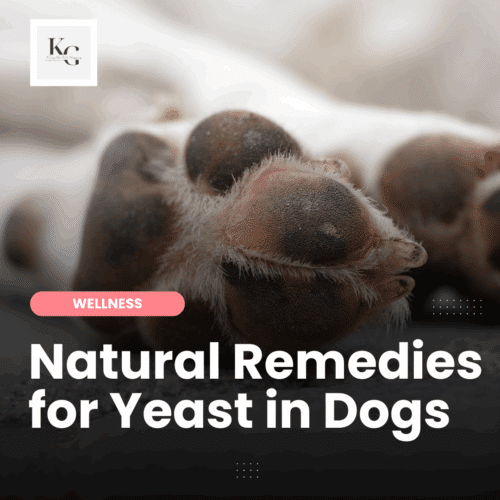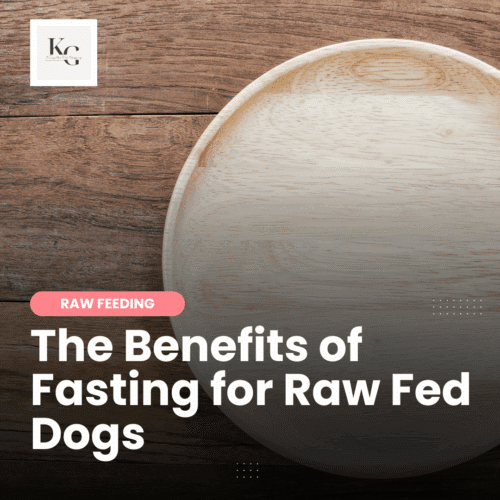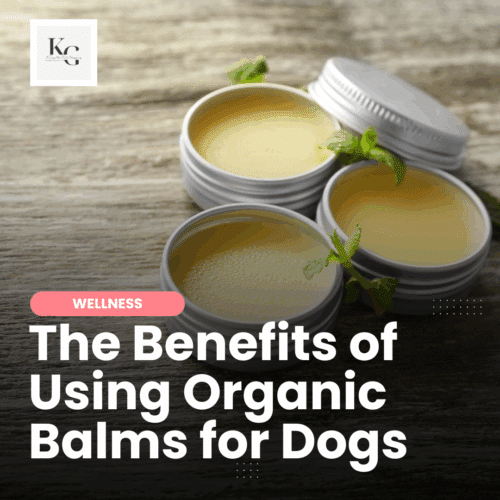Keep the Tail Wagging is supported by pet parents. I occasionally earn a commission (at no additional cost to you) when you click through an affiliate link to one of my favorite products. Thank you for your support. Read More
Digestive issues are common among dogs, ranging from mild discomfort to serious health problems. Pet owners need to understand the signs of digestive issues and know when to seek veterinary care. This blog post will discuss common digestive problems in dogs, their symptoms, home remedies to treat mild cases, and how to determine if a dog needs to see a veterinarian.
Common Digestive Issues in Dogs
- Diarrhea: Diarrhea is characterized by loose, watery stools and can be caused by various factors such as dietary indiscretion, food intolerance, parasites, infections, or stress.
- Vomiting: Vomiting in dogs can be caused by eating too fast, consuming something toxic, infections, or other underlying health conditions.
- Flatulence: Excessive gas or bloating in dogs can be caused by dietary issues, food intolerances, or swallowing air while eating.
Determining if a Digestive Issue is Serious
It's essential to monitor your dog's symptoms and behavior to determine if a digestive issue is mild and can be treated at home or if it requires veterinary attention. Signs that a digestive issue may be serious and your dog should see a veterinarian include:
- Persistent Symptoms: If your dog's digestive issues persist for more than 24 hours, it's time to consult a veterinarian.
- Bloody Stools or Vomit: Blood in stools or vomit is a red flag and requires immediate veterinary attention.
- Lethargy or Weakness: If your dog shows signs of lethargy, weakness, or dehydration, it's crucial to seek veterinary care.
- Signs of Pain or Tenderness: If your dog reacts as if in pain or if an area is tender, contact the veterinarian immediately.
Home Remedies for Treating Mild Digestive Issues
- Fasting: Give your dog's digestive system a break by fasting them for 12-24 hours, then gradually reintroduce a bland diet like boiled chicken and plain pureed pumpkin or sweet potatoes.
- Probiotics: Adding probiotics to your dog's diet can help restore the balance of good bacteria in their gut and aid digestion.
- Fermented Foods: Adding fermented foods to a dog's diet can help build a healthy gut microbiome, which can reduce digestive issues.
- Olewo Carrots: A fiber-rich, whole-food supplement that heals the gut lining and stops loose stool and diarrhea.
- Pumpkin: Canned pureed pumpkin, with its high fiber content, is known to help with diarrhea and constipation in dogs.
Rice Makes Digestive Issues WORSE
Although dogs can digest rice, holistic veterinarians typically recommend against feeding it regularly. Rice is a carbohydrate with little nutritional value and can lead to insulin resistance and obesity, particularly because white rice has a high glycemic index. With many dogs living with digestive issues (leaky gut, IBD, etc.), pet parents may be tempted to feed rice on a regular basis to reverse symptoms, unaware that they are creating new health issues.
- Minimal Nutritional Value: Rice, particularly white rice, consists mainly of carbohydrates and lacks essential proteins, fats, vitamins, and minerals that dogs require for optimal health.
- High Glycemic Index: White rice can lead to quick increases in blood sugar levels, which can be harmful to dogs, particularly those that have diabetes or obesity.
- Potential for Insulin Resistance: Rice's high carbohydrate content may lead to insulin resistance, a condition in which the body becomes less sensitive to insulin, which could potentially result in diabetes.
- Arsenic Contamination: Rice can sometimes be contaminated with arsenic, a toxic heavy metal. This is another reason to limit its consumption.
- Inflammatory Effects: Some holistic veterinarians believe that grains such as rice may be inflammatory for dogs, potentially worsening conditions like arthritis and diabetes.
- Better Alternatives: Instead of relying on rice, consider feeding your dog a diet that is rich in lean meats, fish, vegetables, and fruits. These ingredients provide essential nutrients without the risks associated with rice.
Instead of using rice in bland recipes for my dogs, I prefer to use plain, pureed pumpkin or sweet potatoes, pureed or blanched vegetables, or Olewo Carrots.
Favorite Digestive Supplements for Dogs
A digestive supplement is a product designed to support and promote healthy digestion and gastrointestinal function in dogs. These supplements typically contain a combination of ingredients that can aid in digestion, maintain gut health, and improve nutrient absorption. Here is a breakdown of the benefits of digestive supplements for dogs:
Reduce Digestive Upset: Dogs that experience stress, dietary changes, or other factors that can disrupt their digestive system may benefit from digestive supplements to help calm and soothe their stomach and intestines.
Support Digestive Health: Digestive supplements often contain probiotics, enzymes, prebiotics, and other beneficial ingredients that can help maintain a healthy balance of gut bacteria, improve digestion, and support optimal gastrointestinal function in dogs.
Relieve Digestive Issues: Digestive supplements can help alleviate common digestive issues in dogs such as diarrhea, constipation, gas, bloating, and indigestion. The ingredients in these supplements may help soothe the digestive tract and promote regular bowel movements.
Enhance Nutrient Absorption: By improving digestion and the absorption of nutrients from food, digestive supplements can help ensure that dogs receive the essential vitamins, minerals, and other nutrients needed for overall health and well-being.
Support Immune Function: A healthy digestive system is closely linked to a strong immune system. Digestive supplements can help maintain a healthy gut microbiome, which plays a crucial role in supporting immune function and overall health in dogs.
Reduce Food Sensitivities: Some digestive supplements contain ingredients that can help dogs with food sensitivities or allergies by supporting a healthy gut lining, reducing inflammation, and improving the digestion of certain nutrients.
Promote Regularity: Digestive supplements can help regulate bowel movements and promote regularity in dogs, which is essential for overall digestive health and comfort.
Digestive Supplements I Give to My Dogs
I've had several dogs with digestive issues. I've been told that dogs regularly fed a kibble diet (versus fresh food), will develop a leaky gut or IBD (inflammatory bowel disease). I've healed my dogs gut by starting with Gut Soothe by Adored Beast Apothecary for 30 to 60 days, depending on the severity of the symptoms.
I then transition to the following digestive supplements, which I routinely give to my dogs to help maintain a healthy gut microbiome:
- Gussy's Gut Daily, which I alternate with Gussy's Gut Youthful Grasses & Sprouts
- ION Gut Support for Pets
- Soil & Sea by Adored Beast Apothecary
Bland Dog Food Recipe
Dog owners are often told to feed plain chicken and rice as a bland diet to treat digestive issues. However, many dogs have a chicken sensitivity and rice is terrible for digestive health. When feeding my dogs, I don't worry about balance, I just want to feed something gentle on the tummy. So, make a meal:
Ingredients
- 3 lbs ground chicken or turkey (or another poultry protein)
- 3 scrambled or boiled eggs
- 3 tablespoons of Olewo Carrots (or 1/2 cup of plain pureed pumpkin or sweet potatoes)
- pureed vegetables (collard greens, green beans, zucchini, and other dog friendly green vegetables)
Directions
- gently cook the ground chicken or turkey (I use poultrybecause they gentler on the stomach than other proteins)
- cook and mix in the eggs
- hydrate the Olewo Carrots and mix into the grind
- mix in the pureed vegetables (I puree, because it's easier on the tummy, and it breaks the cellular wall, making the nutrients more bioavailable)
Knowing how to identify and treat mild digestive issues in dogs at home can help prevent them from escalating into more serious health problems. Pet owners can ensure their furry companions stay happy and healthy by understanding common digestive issues, monitoring symptoms, and knowing when to seek veterinary care. Always consult a veterinarian if you are unsure or if your dog's symptoms worsen.





